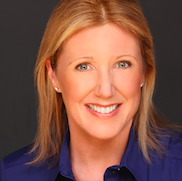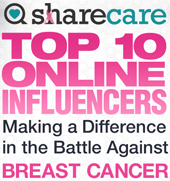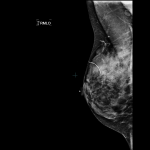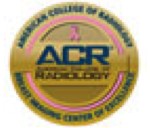How to Find a “Good” Breast Imaging Center
I’ve received several inquiries from women living in various regions of the country, asking how they should choose where to go for their mammogram, and if it really matters. I cannot emphasize this enough: It matters! Here are a few tips to help your search:
- The most basic requirement is whether a facility is accredited under the MQSA (Mammography Quality Standards Act). The accrediting body for most states is the ACR (American College of Radiology), which has a list of requirements and tests that facilities must comply with in order for the centers to achieve accreditation. They look at things such as equipment and film quality, radiation dose, credentials of the mammography technologists and of the radiology doctors who interpret the films, quality of reporting and follow-up, etc. Inspectors visit centers at regular intervals for “site visits.” If you are having a mammogram and the staff seems particularly stressed out, it’s likely that the inspector is lurking about. Have pity, and try not to take it personally.The ACR has a convenient webpage for you to search for accredited facilities in your vicinity.
- When you see the results of your search on the ACR site, look for this badge next to the names of the breast centers on your list:
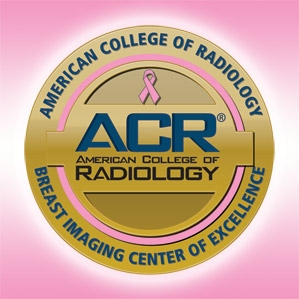
This symbol means that the center has jumped through many extra hoops to attain status as a “Breast Imaging Center of Excellence.” My own practice in New Jersey has been designated as a Center of Excellence, after a lot of work by many people. It’s worth your while to go to one of these centers if it’s practical for you, depending on where you live and how far you are willing to travel. It can make your life easier down the line because if you ever need to have additional testing or a needle biopsy, these centers can handle it and won’t need to send you elsewhere. At the very least, these facilities have demonstrated their commitment to their patients by dealing with the bureaucracy and mounds of documentation necessary to achieve this special status. It’s not a guarantee of higher quality, but it’s a good sign. - It matters who reads your mammogram. If your study is read by a radiology doctor (radiologist) who practices general radiology or another radiology subspecialty and only reads a few mammograms per week, you are probably not receiving the best care. Yes, the guy is board certified and is licensed by law to read your mammogram. But I am licensed to read all radiology studies as well, even though my specialty is breast imaging. Doesn’t mean I should muddle through interpreting the next brain or shoulder MRI that comes my way. Thinking about it now, I am “qualified” to read Peyton Manning’s next MRI of his neck. Do you believe that anyone in their right mind would let me do this? My point: You and your life are just as important as the talented Mr. Manning’s career. Don’t settle for less than the best. A well-done study published several years ago proves and quantifies this point. The link to the journal article is here. The researchers found that specialty-trained breast radiologists find significantly more cancers, and at earlier stages, than the general radiologists.
So how do you make sure the most qualified radiologist will read your mammogram?
- When you make your mammogram appointment, hopefully at a Breast Imaging Center of Excellence, ask if the center has radiologists who have completed fellowships in breast imaging, OR who read breast imaging studies at least 50% of their work hours. If they say yes, take names, and ask to have your mammogram scheduled to be read by one of those doctors. If they say no, or if they tell you that the center doesn’t allow you to request a particular radiologist, consider calling the next breast center on your list from your search.
- When you go for your appointment, confirm with the technologist (the person who runs the machine and takes the pictures) that the doctor you requested will be personally handed your examination to read. Don’t worry about looking pushy– unless you are in an emergency situation (or you have a really, really bad insurance plan), you have the right to decide who the doctor is that will treat you.
- When you receive the report that informs you of your results, confirm that the correct doctor performed the reading. If there is an error, call the center and ask to speak to the Lead Mammography Technologist. If this gets you nowhere, ask for the practice administrator. An unhappy patient, especially one whose referring doctor sends other patients to the breast center, is an undesirable outcome for any practice administrator worth his or her salt. The squeaky (but respectful) wheel usually gets the oil, in my experience at radiology practices over the years.
ALL MAMMOGRAMS ARE NOT CREATED EQUAL! I urge you to do your homework and get the best medical care you can for yourself. Where you have your mammogram, and who reads it, matter.
Tags: American College of Radiology, breast MRI, Mammography Quality Standards Act, Peyton Manning

